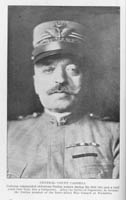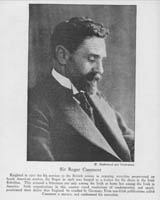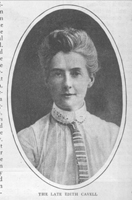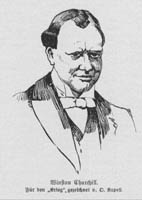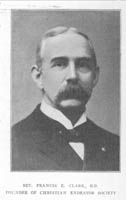Table of Contents
Key Figures
Statesmen
a | b | c | d-e | f | g | h-i | j-l | m | n-o | p | r | s | t-v | w-y
Luigi Cadorna (1850-1928)
An Italian general, Cadorna came from an established military family. He attained the rank of major general in 1898 and became the Italian Chief of Staff by July 1914. Although Italy was a member of the Triple Alliance with Germany and Austria-Hungary, the Italians argued that the treaty was defensive in nature. When Austria-Hungary declared war on Serbia in July 1914, the act nullified Italian mobilization. As both the Central Powers and the Allies negotiated with the Italian government to declare war, Cadorna mobilized the Italian Army. In May 1915, the Italians cast their lot with the Allies and Cadorna launched a series of bloody offensives against entrenched Austro-Hungarian positions in the mountains of the Isonzo Front. The Italians fought eleven battles on the Isonzo and gained very little ground despite terrible casualties. Because of the weakness of the Italian government, Cadorna remained in command. In October 1917, an Austro-German offensive surprised Cadorna and the Italians retreated in disarray south of the Piave River. The Central Powers captured large numbers of Italian prisoners in the Battle of Caporetto. Cadorna was finally removed from command in November and replaced with General Armando Diaz. A post-war government investigation blamed the Italian Army's poor performance during World War I on Cadorna.
Sir Roger David Casement (1864-1916)
A British consular agent and Irish nationalist, Casement became a distinguished social advocate in Africa and Latin America. Casement exposed atrocities in the rubber trade in the Upper Congo region in 1903 and conducted an investigation of abuses by the Anglo-Peruvian Amazon Company in 1913. For his humanitarian efforts, the British government knighted Casement. To support Irish independence, Casement joined the Irish Nationalists and organized the National Volunteers in 1913. When World War I broke out, Casement traveled to Berlin to seek assistance in gaining independence for Ireland. The German government supported his plan and permitted Casement to recruit volunteers for an expedition from British prisoners of war, assigned primarily at the prison camp in Limburg. Despite a small number of volunteers, Casement pressed ahead with his plans and a German submarine landed Casement and other Irish nationalists near Tralee in 1916. The British intercepted the party and tried Casement for treason. The British found him guilty and he was hanged as a traitor.
Edith Cavell (1865-1915)
An English nurse, Cavell served as the head matron for the Berkendael Medical Institute in Brussels before the war training nurses. The institute became a Red Cross hospital after the war began in August 1914 and cared for Belgian, French, British, and German wounded. Cavell assisted about 200 British, French, and Belgian soldiers cross the border into neutral Holland between November 1914 and July 1915. The German police arrested her in August and charged Cavell with providing aid to the enemy. Cavell readily admitted her participation in helping Allied soldiers escape at her October 1915 court-martial. The court found her guilty and condemned her to death. She was shot on 12 October with Philippe Baucq, a Belgian who served as a guide for the Allied soldiers. Cavell's execution created an international uproar against the Germans and the British government used her martyrdom as a recruiting tool.
Sir Winston Leonard Spencer Churchill (1874-1965)
A British statesman, Churchill served with Spanish forces in Cuba in 1895, was present at the capture of Khartoum in the Sudan in 1898, and worked as a correspondent during the Boer War in 1899. Returning to England, Churchill became a Conservative Member of Parliament, serving from 1901 to 1922 and from 1924 to 1965. He became the Undersecretary for Colonies from 1908 to 1910 and promoted self-government for the Transvaal and the Orange River Colony. Churchill became Home Secretary in 1910 and First Lord of the Admiralty in 1911. He built up the Royal Navy and established the Naval War Staff. When World War I broke out, Churchill dispatched the Naval Division to Antwerp in an attempt to stem the German invasion of Belgium. He denounced German submariners as "pirates" under international law and sent U-boot prisoners to reprisal camps. In response, the German government sent British officers to reprisal camps, a situation which eventually forced the British government to return submarine prisoners to regular prison camps. His decision to promote the Dardenelles expedition and its subsequent failure resulted in his dismissal from the Admiralty in 1915. He served with a British regiment in France in 1916, but returned to government service as Minister of Munitions in 1917. Churchill then became Secretary for War and Air from 1919 to 1921, Secretary for Colonies from 1921 to 1922, and Chancellor of the Exchequer from 1924 to 1929. With Britain's declaration of war against Germany in September 1939, Churchill returned to naval service as First Lord of the Admiralty. With the collapse of France and Neville Chamberlain's resignation, Churchill became Prime Minister in 1940. As a member of the Big Three (with Franklin D. Roosevelt and Josef Stalin), he guided Britain through the war, but lost the general election of July 1945 to Clement Attlee, the Labour leader. The British reelected the Conservatives in 1951 and Churchill held the office of Prime Minister until 1955.
Francis Clarke
An American missionary, Clarke worked with the support of the Congregationalist church in Bulgaria. In 1888, Clarke introduced the Christian Endeavor Society in the kingdom. This organization was the fore-runner to the YMCA as the society was dedicated to the promotion of Christian welfare among the young men of Bulgaria.
